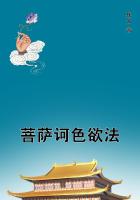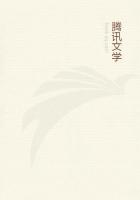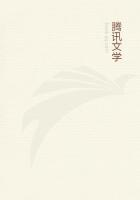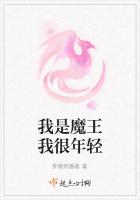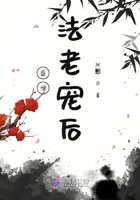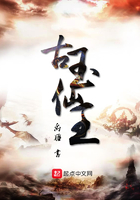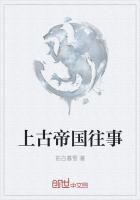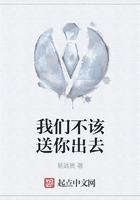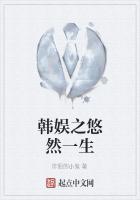1And now the whole fabric of civilisation was bending and giving, and dropping to pieces and melting in the furnace of the war.
The stages of the swift and universal collapse of the financial and scientific civilisation with which the twentieth century opened followed each other very swiftly, so swiftly that upon the foreshortened page of history--they seem altogether to overlap.
To begin with, one sees the world nearly at a maximum wealth and prosperity. To its inhabitants indeed it seemed also at a maximum of security. When now in retrospect the thoughtful observer surveys the intellectual history of this time, when one reads its surviving fragments of literature, its scraps of political oratory, the few small voices that chance has selected out of a thousand million utterances to speak to later days, the most striking thing of all this web of wisdom and error is surely that hallucination of security. To men living in our present world state, orderly, scientific and secured, nothing seems so precarious, so giddily dangerous, as the fabric of the social order with which the men of the opening of the twentieth century were content. To us it seems that every institution and relationship was the fruit of haphazard and tradition and the manifest sport of chance, their laws each made for some separate occasion and having no relation to any future needs, their customs illogical, their education aimless and wasteful. Their method of economic exploitation indeed impresses a trained and informed mind as the most frantic and destructive scramble it is possible to conceive; their credit and monetary system resting on an unsubstantial tradition of the worthiness of gold, seems a thing almost fantastically unstable. And they lived in planless cities, for the most part dangerously congested; their rails and roads and population were distributed over the earth in the wanton confusion ten thousand irrevelant considerations had made.
Yet they thought confidently that this was a secure and permanent progressive system, and on the strength of some three hundred years of change and irregular improvement answered the doubter with, "Things always have gone well. We'll worry through!"But when we contrast the state of man in the opening of the twentieth century with the condition of any previous period in his history, then perhaps we may begin to understand something of that blind confidence. It was not so much a reasoned confidence as the inevitable consequence of sustained good fortune. By such standards as they possessed, things HAD gone amazingly well for them. It is scarcely an exaggeration to say that for the first time in history whole populations found themselves regularly supplied with more than enough to eat, and the vital statistics of the time witness to an amelioration of hygienic conditions rapid beyond all precedent, and to a vast development of intelligence and ability in all the arts that make life wholesome. The level and quality of the average education had risen tremendously; and at the dawn of the twentieth century comparatively few people in Western Europe or America were unable to read or write. Never before had there been such reading masses. There was wide social security. A common man might travel safely over three-quarters of the habitable globe, could go round the earth at a cost of less than the annual earnings of a skilled artisan. Compared with the liberality and comfort of the ordinary life of the time, the order of the Roman Empire under the Antonines was local and limited. And every year, every month, came some new increment to human achievement, a new country opened up, new mines, new scientific discoveries, a new machine!
For those three hundred years, indeed, the movement of the world seemed wholly beneficial to mankind. Men said, indeed, that moral organisation was not keeping pace with physical progress, but few attached any meaning to these phrases, the understanding of which lies at the basis of our present safety. Sustaining and constructive forces did indeed for a time more than balance the malign drift of chance and the natural ignorance, prejudice, blind passion, and,wasteful self-seeking of mankind.
The accidental balance on the side of Progress was far slighter and infinitely more complex and delicate in its adjustments than the people of that time suspected; but that did not alter the fact that it was an effective balance. They did not realise that this age of relative good fortune was an age of immense but temporary opportunity for their kind. They complacently assumed a necessary progress towards which they had no moral responsibility. They did not realise that this security of progress was a thing still to be won--or lost, and that the time to win it was a time that passed. They went about their affairs energetically enough and yet with a curious idleness towards those threatening things. No one troubled over the real dangers of mankind. They, saw their armies and navies grow larger and more portentous; some of their ironclads at the last cost as much as the whole annual expenditure upon advanced education; they accumulated explosives and the machinery of destruction; they allowed their national traditions and jealousies to accumulate;they contemplated a steady enhancement of race hostility as the races drew closer without. concern or understanding, and they permitted the growth in their midst of an evil-spirited press, mercenary, and unscrupulous, incapable of good, and powerful for evil. The State had practically no control over the press at all. Quite heedlessly they allowed thistouch-paper to lie at the door of their war magazine for any spark to fire. The precedents of history were all one tale of the collapse of civilisations, the dangers of the time were manifest. One is incredulous now to believe they could not see.
Could mankind have prevented this disaster of the War in the Air?


